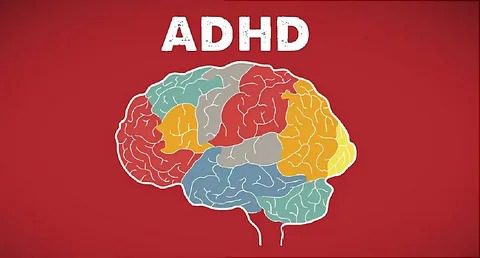The neurodevelopmental disorder known as attention deficit hyperactivity disorder (ADHD) not only impacts the person with the diagnosis but also significantly affects the dynamics of their family, including their siblings. Siblings of people with ADHD frequently have particular difficulties and can need assistance navigating their familial responsibilities. This article examines the effects of ADHD on siblings and family dynamics, as well as typical problems that siblings encounter and methods for helping siblings and promoting wholesome connections within the family.
Recognizing ADHD’s Effect on Siblings
Effect on Emotions
Siblings of people with ADHD may feel a variety of things, such as guilt, contempt, shame, and frustration. In addition to being irritated by their sibling’s actions, they could also feel guilty for having unfavorable feelings toward them, resentful of the resources and attention given to them, and humiliated by their public meltdowns or disturbances.
Changes in Role
The roles that siblings of people with ADHD frequently play in the family dynamic are frequently altered. They might take on duties that are usually given to parents, such watching over their siblings or helping them with their schoolwork, or they might experience pressure to be the “perfect” sibling in order to make up for their difficulties.
Peer and Social Relationships
The behavior of their sibling may cause social difficulties for siblings of people with ADHD. They could find it difficult to invite friends over because of worries about their sibling’s behavior, or they might feel ashamed or alone among peers who do not comprehend their condition.
Typical Obstacles Siblings Face
Sensations of Ignorance
Parents of children with ADHD may feel as though their sibling is being ignored or neglected because they are too busy controlling their child’s symptoms and actions. They could feel alone or resentful because they think their parents aren’t paying them enough attention or supporting them
Sibling Disagreement
Families with children who have ADHD frequently experience sibling conflict because the children may quarrel or vie for resources and attention. Families may experience stress and strain due to conflict that stems from disparities in roles, expectations, or coping mechanisms.
Behavioral and Academic Difficulties
Siblings of people with ADHD may face their own behavioral and academic difficulties. Their academic performance and well-being may be impacted by their sibling’s disturbances, which could make it difficult for them to focus on their homework or cause them to feel overwhelmed.
Techniques for Encouraging Siblings and Creating a Positive Family Environment
Knowledge and Consciousness
Age-appropriate information about ADHD can aid siblings in comprehending the illness and actions of their older brother. Education can help people feel less confused or frustrated and more accepting and empathetic toward their sibling.
Honest Communication
It takes open communication between family members to address concerns about siblings and to foster understanding and collaboration. Fostering mutual respect and strengthening family ties can be achieved by providing a secure and supportive space for siblings to communicate their needs, feelings, and worries.
Personal Assistance
Siblings’ particular demands and difficulties might be addressed by providing them with individualized support. This could be giving parents the chance to spend time alone with them, participating in activities that play to their skills and interests, or setting them up with peer support groups or counseling services.
Joint Accountability
Sibling participation in shared duties and decision-making can foster a feeling of belonging and ownership inside the family. Siblings can feel empowered and develop a feeling of competence and self-worth when age-appropriate responsibilities and roles that support the family’s well-being are assigned.
Spending time together and building bonds
Family bonds can be strengthened and happy memories can be made by setting aside time for bonding activities and activities. Taking part in games, trips, or pastimes that are fun and meaningful for every family member helps foster a sense of unity and connection.
Looking for Assistance
Families impacted with ADHD might benefit greatly from seeking assistance from experts, such as family therapists or support groups, who can offer helpful advice and resources. While support groups can give parents and siblings a sense of belonging and validation, family therapy can help with communication, problem-solving, and coping techniques.
In summary
Families with children who have ADHD must encourage positive family dynamics and provide support to their siblings. Through comprehension of the effects of ADHD on siblings, resolution of shared difficulties, and use of support and communication tactics, families can fortify their bonds and advance the welfare of every family member. Families with ADHD children can manage the difficulties associated with the disorder and establish a loving and caring atmosphere for all siblings by collaborating as a team and asking for help when necessary.


